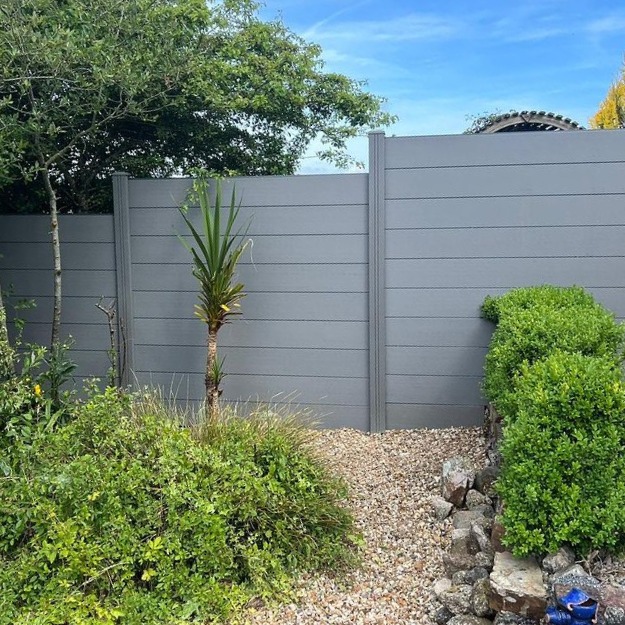All Categories
Featured

Selecting the ideal fencing product is crucial for achieving the balance of durability, aesthetic appeals, and functionality that suits your residential or commercial property. Timber, vinyl, and aluminum are prominent options, each with unique functions that accommodate specific needs. Right here's a comprehensive take a look at the benefits and negative aspects of these 3 materials.
Wood Fence. Pros:. Ageless Appeal: Wood uses an all-natural, timeless look that matches numerous architectural designs. Customizable: It can be repainted or stained in a range of layouts and colors. Budget friendly: Timber fences are frequently more affordable upfront than vinyl or light weight aluminum. Eco-Friendly: As an eco-friendly source, timber is lasting and biodegradable when sourced responsibly. Cons:. Maintenance-Intensive: Needs routine discoloration, paint, or sealing to secure versus climate and pests. Shorter Life-span: Depending upon the kind of wood and environment, it typically lasts 10-15 years. Vulnerability to Damages: Prone to deteriorating, warping, and termite damages without correct treatment. Timber is perfect for property owners that value visual appeals and agree to invest effort and time in maintenance to extend its life.
Vinyl Fence. Pros:. Durable: Immune to pests, rot, and weather condition, plastic preserves its structure in rough conditions. Low Maintenance: Needs little maintenance beyond periodic cleaning. Lengthy Lifespan: Plastic can last 20-30 years without significant wear or damages. Functional Designs: Offered in various colors, textures, and styles, consisting of choices that resemble wood. Disadvantages:. Costly Installment: Vinyl fencings are more costly to install contrasted to wood. Weak in Cold Weather: Plastic can break in severe chilly environments. Hard to Repair work: If harmed, entire sections may require substitute, which can be challenging to match. Vinyl secure fencing is a terrific choice for those prioritizing durability and very little upkeep, also if it features a higher ahead of time price.

Aluminum Fencing. Pros:. Rust-Resistant: Light weight aluminum does not corrosion, making it perfect for moist or moist locations. Lightweight yet Strong: Offers stamina without being extremely hefty, which streamlines setup. Reduced Upkeep: Needs bit even more than cleaning and occasional repainting. Durability: Light weight aluminum fences can last for years without substantial deterioration. Classy Styles: Commonly made use of for decorative purposes, light weight aluminum adds class to any kind of residential or commercial property. Disadvantages:. High Initial Cost: Aluminum fencings are amongst the more costly options. Limited Personal privacy: Usually developed with open spaces, they do not block sights or noise. At risk to Dents: While strong, light weight aluminum can be dented or curved with heavy impact. Light weight aluminum is best suited for those that want a long-lasting, fashionable fence and don't call for full privacy.
Making the Right Option. Each product has its toughness and weaknesses:

Wood is excellent for traditional looks and eco-conscious customers who don't mind maintenance. Vinyl works for homeowners seeking a weather-resistant, low-maintenance option. Aluminum is a sturdy, attractive choice for those that desire elegance and longevity. Consider your top priorities-- whether it's price, appearance, privacy, or upkeep-- and get in touch with a fence professional to select the product that best satisfies your needs. A well-selected fencing will boost your home for several years ahead.
Latest Posts
Courtside Treat Shack: Quick Bites for Sports Lovers
Published May 07, 25
1 min read
Why Pick Washington Fencing for Your Fencing Demands
Published May 07, 25
1 min read
Signs When Your Car Needs Professional Car Repair at Montclare Auto Repair
Published May 07, 25
1 min read